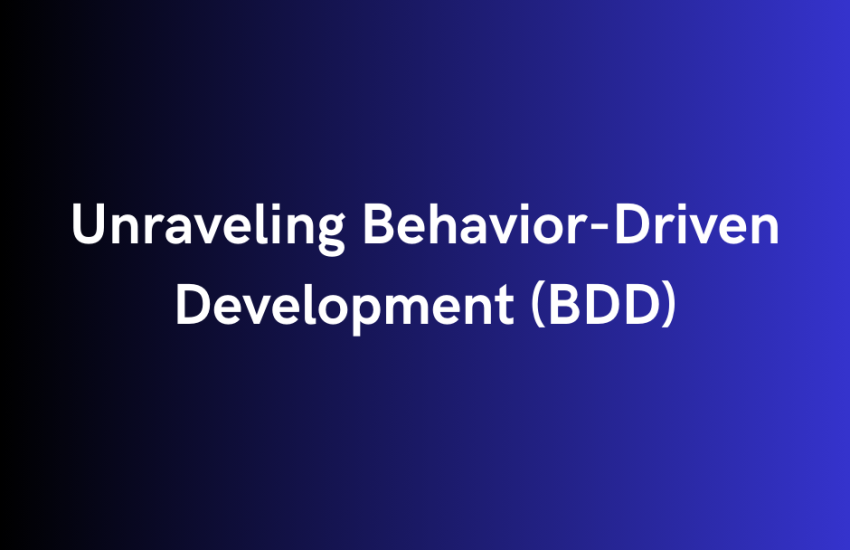In the world of software development, talking and understanding each other is super important. Behavior-Driven Development helps with that by making sure everyone is on the same page. Let’s dive into what BDD is all about.
Understanding Behavior-Driven Development:
BDD is not just a way to test things; it’s a team effort. It’s like having a group chat between developers, testers, and business folks. The goal is to define and understand how we want our software to behave.
Key Parts of BDD:
Gherkin Language:
BDD talks in a language called Gherkin. It’s simple and helps us describe what we want our software to do using words like Given, When, and Then.
Scenarios and Examples:
BDD comes with stories or scenarios that show how our software should act in different situations. These are written in Gherkin and also act as instructions for testing.
Living Documentation:
BDD keeps our instructions alive and kicking. Instead of boring papers, we have living, breathing instructions that can be tested anytime.
BDD Steps:
Team Chat:
BDD starts with everyone, including developers, testers, and business folks, having a friendly chat. This makes sure everyone knows what we’re building.
Writing Stories:
We write down our stories in Gherkin. Think of it like telling a friend how our software should behave in different scenes.
Making it Work:
We use tools like Cucumber or SpecFlow to turn our stories into tests. This means our computer can check if our software is doing what it’s supposed to.
Quick Feedback:
BDD gives us fast feedback. Our tests run quickly, telling us if everything is going as planned or if something needs fixing.
BDD Good Stuff:
Teamwork:
BDD brings everyone together – developers, testers, and others. Teamwork makes the dream work!
Easy Talk:
With Gherkin, we all talk in the same language. No more confusion or techy jargon.
Living Instructions:
Our instructions stay fresh and alive, not like old papers that no one reads.
Early Fixes:
BDD helps catch issues early on, so we can fix things before they become big problems.
User Focus:
We write our stories from a user’s perspective, making sure our software does what users expect.
Agile Friends:
BDD is pals with Agile methods, helping us build and test our software bit by bit.
Challenges and Tips:
Challenges:
1. Don’t get too caught up in fancy tools.
2. Make sure everyone joins the chat.
3. Keep scenarios in check; too many can be a handful.
Tips:
1. Talk often with your team.
2. Write stories that everyone can understand.
3. Focus on what’s super important for users.
Conclusion:
Behavior-driven development is like having a fun chat to make sure everyone in the software team knows what they’re doing. It keeps our instructions fresh, catches problems early, and makes our users happy. It’s a cool way to work together and build awesome software!




